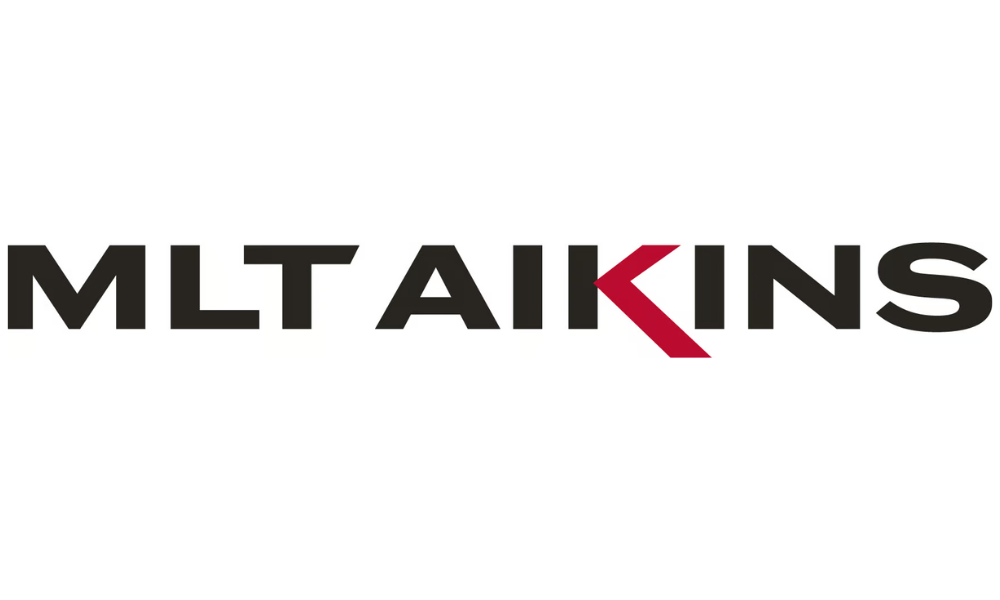Greenwashing typically refers to the practice of making claims which represent that a business or its products are more environmentally friendly than they actually are. ESG reporting refers to the disclosure of information regarding a company’s environmental, social, and governance (“ESG”) practices, the results of which are typically utilized to compare the company’s ESG initiatives to industry benchmarks and targets.
This article outlines recent amendments to the federal Competition Act (the “Act”) which introduced new “anti-greenwashing” provisions to the misleading advertising provisions of the Act. The new provisions could result in harsh financial penalties if contravened, and the amendments will also significantly expand the right to pursue private actions under the Act as of June 20, 2025.
The ongoing development of voluntary and mandatory climate disclosure frameworks also plays into the new “anti-greenwashing amendments.” As such, this article provides an overview of the ongoing development of voluntary and mandatory climate disclosure and ESG reporting frameworks, including the Canadian Sustainability Disclosure Standards (“CSDS” or the “CSSB Standards”).
Amendments to the Competition Act
On June 20, 2024, the federal Bill C-59 received royal assent and introduced significant amendments to the Act in the areas of misleading advertising and private actions.
“Anti-Greenwashing” Provisions
Among the amendments are new civil misleading advertising provisions which deem representations about the environmental benefits of a product, business or business activity to be misleading unless the representations are based on:
- “adequate and proper testing” (for a product); or
- “adequate and proper substantiation in accordance with internationally recognized methodology” (in relation to a business or business activity).
These amendments, colloquially referred to as the “anti-greenwashing provisions,” took immediate effect upon Bill C-59 receiving royal assent. If the Competition Tribunal (the “Tribunal”) concludes that a party has contravened the anti-greenwashing provisions, it may order the payment of the following administrative monetary penalties:
- For individuals, the greater of:
- $750,000 on first orders and $1 million on subsequent orders; and
- Three times the value of the benefit derived from the deceptive conduct, if that amount can be reasonably determined.
- For corporations, the greater of:
- $10 million on first orders and $15 million on subsequent orders; and
- Three times the value of the benefit derived from the deceptive conduct, or, if that amount cannot be reasonably determined, 3% of the corporation’s annual worldwide gross revenues.
Undoubtedly, these are very significant penalties.
While the Competition Bureau (the “Bureau”) has previously commented on what might constitute an adequate and proper test, the phrase “substantiation in accordance with internationally recognized methodology” is new to the Act. This vague language, combined with the lack of guidance from the Bureau to date as to what methodologies or standards will be acceptable, has led to significant uncertainty for Canadian businesses whose marketing contains environmental claims. Some businesses and organizations, such as the Pathways Alliance, have even gone as far as to remove many public communications from their websites due to the lack of clarity surrounding the anti-greenwashing provisions.
Canadian businesses continue to wait for comprehensive guidance from the Bureau to assist them in ensuring their environmental representations do not contravene the Act – the Bureau’s public consultation process recently closed on September 27, 2024. In the interim, the Bureau did publish the following list of “tips” to be considered by businesses making environmental claims in a July 2024 edition of its Deceptive Marketing Practices Digest:
- Be truthful, and not false or misleading;
- Ensure claims are properly and adequately tested;
- Be specific about what is being compared when making comparative claims;
- Avoid exaggeration;
- Avoid vague environmental claims in favour of clear and specific ones; and
- Avoid aspirational claims about the future.
Expansion of private rights of action
The amendments to the Act also expand the circumstances in which private parties can seek leave from the Tribunal to commence actions to seek remedies for certain anti-competitive conduct of another person or business. However, these amendments take effect as of June 20, 2025.
Previously, private parties could only seek remedies in relation to the restrictive trade practices provisions of the Act. As a result of the amendments, private parties will also be permitted to apply to commence actions for deceptive marketing (including greenwashing) under section 74.1 of the Act. The standard to obtain leave to bring an application will also be relaxed. In particular, applicants under section 74.1 will only be required to demonstrate that it is “in the public interest” that leave to bring the application be granted.
The amendments also create a new quasi-class action remedy which, in addition to ordering payment of the penalties outlined above, permits the Tribunal to grant monetary awards to the complainant (and class of people affected) in amounts “not exceeding the value of the benefit derived” from the misleading conduct. While this quasi-class action remedy will not be available in respect of private applications commenced under the anti-greenwashing provisions, such applications could still result in the Tribunal ordering the payment of penalties. That being said, the lack of access to the class action remedy is unlikely to dissuade environmental interest groups from bringing applications upon the expansion of the private rights of action.
Development of the Canadian Sustainability Disclosure Standards
The general recognition of the risks of climate change by several governments, courts and private actors over the last 15 to 20 years has led to many businesses making environmental and sustainability objectives a key focus of their voluntary ESG disclosures. Whether such disclosures occur voluntarily or become mandatory by way of amendments to Canadian securities laws and regulations, industry proponents making environmental or sustainability-related disclosures should be aware of the risks that misleading ESG disclosures present in light of the recent amendments to the Act.
Voluntary disclosure standards
The body responsible for developing standards to lend credibility to ESG reporting in Canada is Financial Reporting & Assurance Standards Canada (“FRAS”). FRAS is comprised of an oversight council and three boards, including the Canadian Sustainability Standards Board (the “CSSB”), which was established in 2022 to advance the adoption of sustainability disclosure standards.
In 2023, the International Sustainability Standards Board (the “ISSB”), a board constituted by the International Financial Reporting Standards Foundation (“IFRS”), issued drafts of two sustainability disclosure standards (the “IFRS Standards”). The CSSB reviewed the IFRS Standards and, in March 2024, released drafts of the following CSSB Standards:
- CSDS 1: General Requirements for Disclosure of Sustainability-related Financial Information;
- CSDS 2: Climate-related Disclosures.
The CSSB finalized the draft CSSB Standards with slight revisions, on December 18, 2024. The CSSB Standards generally align with the IFRS Standards, but can be voluntarily adopted as of January 1, 2025, which is one year later than the IFRS Standards. The CSSB Standards also contain the following transitional relief:
- Businesses will have two additional years of relief for aligning financial and sustainability reporting, permitting reporting within the first nine months following the first year-end and six months following the second and third year-ends. This relief will end on January 1, 2028;
- The start date for reporting on sustainability matters beyond climate will be January 1, 2027;
- The start date for scope 3 GHG emissions reporting will be January 1, 2028; and
- Businesses will be relieved from quantitative aspects of scenario analysis data reporting requirements until January 1, 2028.
Any Canadian business that chooses to voluntarily adopt the CSSB Standards will need to ensure that any environmental claims in its ESG reporting have been adequately and properly tested or substantiated in accordance with the new anti-greenwashing provisions of the Act, as it is indeed possible that the Bureau would consider such claims to be a representation to the public. More guidance from the Bureau on the interplay between the Act and standards such as the CSSB standards would certainly be a welcome development.
Mandatory disclosures
While the adoption of the CSSB Standards outlined above will be voluntary, the Canadian Securities Administrators (“CSA”) has voiced its support for the development of the CSSB Standards, noting that they could become mandatory under Canadian securities legislation, but only after they are incorporated into a CSA rule. Therefore, it is possible, if not likely, that sustainability disclosures will become mandatory in Canada in the coming years.
It is also worth noting that the federal government recently announced a plan to bring forward amendments to the Canada Business Corporations Act which would mandate climate-related disclosures for “large” federally-incorporated private companies. There have been very few details about this proposed framework, but the government has stated that these disclosures will help investors better understand how large businesses are thinking about and managing risks related to climate change, ensuring that capital allocation aligns with the realities of what the economy requires to achieve net-zero. Again, more guidance from the Bureau on the interplay between the Act and standards such as these would be welcome.
Canadian businesses wise to take cautious approach to environmental claims
The significant monetary penalties that can be imposed for violating the anti-greenwashing provisions under the Act and the expansion of private rights of action suggest that combatting misleading environmental claims is currently a prime concern for Canadian legislators. Until the Bureau publishes more comprehensive guidance on navigating these new amendments, Canadian businesses would be wise to take a cautious approach to making environmental claims.
In that context, the increasing societal pressure on businesses to reduce the environmental impacts of their operations has led to the development of a voluntary climate-related disclosure framework. Before choosing to adopt this framework, and until the Bureau clarifies the scope and ambit of the new anti-greenwashing provisions, Canadian businesses should review any environmental aspects of their ESG reporting to ensure that environmental claims are factual and adequately substantiated to avoid the risk of harsh financial consequences that could arise from contraventions of the new anti-greenwashing provisions.
***
 John Agioritis, is partner in the firm’s Saskatoon office.
John Agioritis, is partner in the firm’s Saskatoon office.
***
 Jayden Toth is an associate lawyer in the firm’s Saskatoon office.
Jayden Toth is an associate lawyer in the firm’s Saskatoon office.





